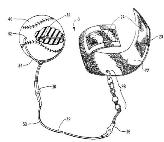Pittsburg, PA – Judge Nora Barry Fischer of the U S District Court for Western District of Pennsylvania has dismissed a suit seeking a declaration a non-infringement of patents owned by a Brownsburg, Indiana company. Patent attorneys for Matthews International Corporation of Pittsburg, Pennsylvannia had filed a lawsuit seeking a declaration of non-infringement of patents owned by Biosafe Engineering, LLC, and Digestor, LLC of Brownsburg, Indiana. The patents at issue are patent nos. 5,332,532, Method for disposing of radioactively labeled animal carcasses, 6,437,211, and 6,472,580 Methods for treatment and disposal of regulated medical waste, 7,829,755, System and method for treating infectious waste matter, and 7,910,788, System for treating infectious waste matter, which have been issued by the US Patent Office. Patent attorneys for Matthews also made state law claims of trade libel, defamation, and tortuous interference with prospective contracts.
and Digestor, LLC of Brownsburg, Indiana. The patents at issue are patent nos. 5,332,532, Method for disposing of radioactively labeled animal carcasses, 6,437,211, and 6,472,580 Methods for treatment and disposal of regulated medical waste, 7,829,755, System and method for treating infectious waste matter, and 7,910,788, System for treating infectious waste matter, which have been issued by the US Patent Office. Patent attorneys for Matthews also made state law claims of trade libel, defamation, and tortuous interference with prospective contracts.
According to the court’s opinion, Matthews is in the cremation industry and provides “environmentally-friendly alternative to flame-based cremations” through an alkaline hydrolysis process. Biosafe is a competitor and owns patent rights to similar process of disposing various types of bio-waste, however none of its patents reference cremation of human remains. In 2008, Biosafe accused Matthews of infringing its patents. Matthews also alleges that Biosafe told prospective customers that Matthews committing patent infringement. In February 2011, Matthews filed this suit seeking a declaration of non-infringement. Biosafe had filed a motion to dismiss, which the court addresses in its memorandum opinion. The court stated the issue before it as “the patent portion of this motion challenges whether this Court has jurisdiction over a declaratory judgment action where the declaratory plaintiff cannot possibly be liable for direct infringement and no direct infringement has occurred such that the declaratory plaintiff could be found liable for indirect infringement.”
The court found that it did not have jurisdiction to issue a declaration of non-infringement because it found that Matthews had taken no steps towards direct infringement of the patents. The court also found it did not have jurisdiction over the state law defamation, libel and tortuous interference claims. The court dismissed the suit with prejudice.
Practice Tip: In its motion to dismiss, Biosafe argued that the court did not have jurisdiction because there was no “case or controversy” regarding a patent infringement claim, citing Federal Rule of Civil Procedure 12(b)(1). The legal standard for jurisdiction over a suit seeking a declaration of non-infringement of a patent has been significantly revised in recent years following the U.S. Supreme Court’s decision in MedImmune, Inc. v. Genentech, Inc., 549 U.S. 118, 132 n. 11 (2007) and its progeny. The court here noted “It is, thus, insufficient in a patent case simply to plead that a declaratory defendant‘s actions have caused economic harm. Instead, under MedImmune, the Federal Circuit has found that an “adverse legal interest” requires a dispute pertaining to a legal right. Arris, 639 F.3d at 1374 (“An adverse legal interest‟ requires a dispute as to a legal right-for example, an underlying legal cause of action that the declaratory defendant could have brought or threatened to bring.”).”
Continue reading

 Indiana Intellectual Property Law News
Indiana Intellectual Property Law News


